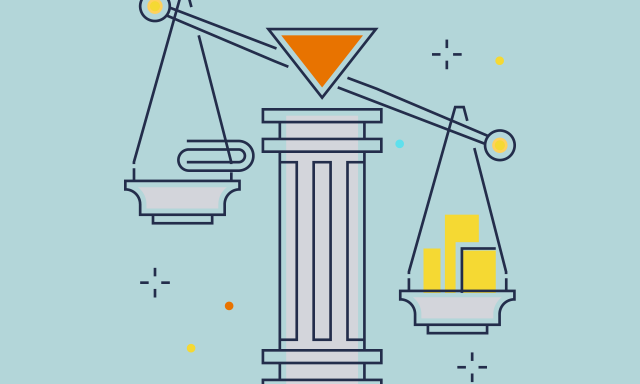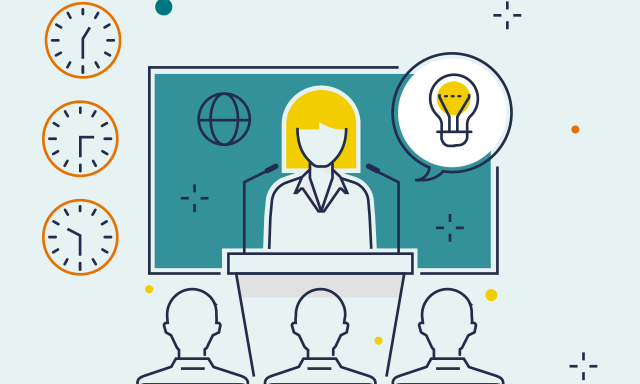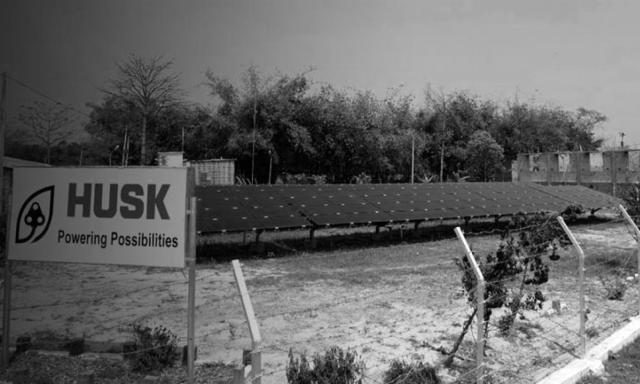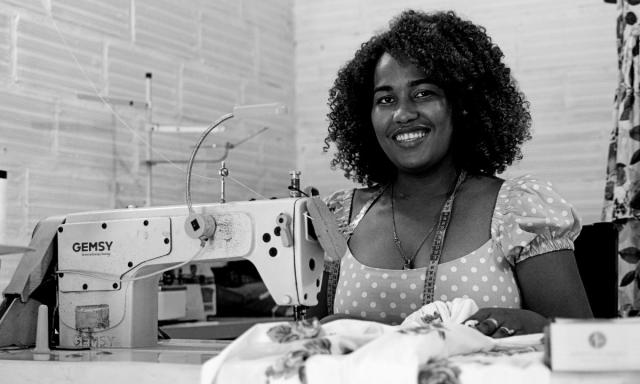
Making the Ask, Part 2: Practical Steps to Entrepreneurial Expertise
The proceeding expands upon Making the Ask, Part 1: The Key to Entrepreneurial Success, which introduces the importance of the effectual ask to entrepreneurship.
As Steve Jobs recalled in a 1994 interview, when he was 12 years old he asked Bill Hewlett, cofounder of the tech giant HP, for spare parts to build a frequency counter. Jobs didn’t know Hewlett personally, but he found his number in the Palo Alto phone book and called him. Not only did Hewlett say yes, but he also offered young Steve a summer job at his company.[1]
Is effective asking just hard-wired into the DNA of iconic entrepreneurs like Apple’s co-founder? According to emerging research from Darden, most founders learn how to “make the ask,” honing that ability through continual, purposeful practice.[2]
Darden Professor Saras Sarasvathy and her research collaborators suggest that asking is a key mechanism in the development of entrepreneurial expertise.[3] “The more I looked at the data,” said Sarasvathy, “the more I thought, ‘How can you practice the ask in such a way that you can become an expert entrepreneur?’”
Drawing from her research, Sarasvathy offers the following advice for would-be founders:
Make Asking a Habit
“Ask everyone — a stranger sitting next to you on a plane,” she said. “I’d start by inquiring about their background and what they do, and as I’m talking to them, I’m formulating my ask in the back of my head.”
“It takes a lot of practice,” said Chip Ransler (MBA ’09), cofounder of multiple companies and head of HackCville, a nonprofit hub for university students pursuing careers in entrepreneurship. “You’re asking, and you’re polishing yourself in the process. It’s about getting to a point where you’re asking bigger questions of bigger people.”
Novice entrepreneurs can start practicing with the following open, “effectual” — that is, means-driven, rather than ends-driven — question prompts:
- What would it take for you to … ? (e.g., invest $100,000 in my venture)
- If you were me, how would you … ? (e.g., market this product)
- I don’t know why you would want to … (e.g., join my board), but tell me how I can make this a big win for you?
Be Open
In an open, effectual ask, said Sarasvathy, “You are talking to people, but you are also listening to what they want to do with your idea, your skills and your resources. If you allow others to think with you, they develop emotional investment in your business, which is good for co-creating the venture.”
Don’t Be Too Strategic
When potential stakeholders don’t fit into categories such as an investor or a supplier, novice entrepreneurs often don’t approach them. Effectual asks, however, allow people to become involved with startups in many different ways. “The person who you think is going to be your customer,” said Sarasvathy, “could become your investor, or even your supplier or distributor. Allow them to select their role.”
Ask for What Is Easy to Give
People are happy to help, especially when the request is for something that’s easy to give. One of Sarasvathy’s favorite examples in this category involved an MBA student, who asked Doug Lebda (EMBA ’14), the founder and CEO of LendingTree, for money to buy airplane tickets. Lebda ended up offering the student his frequent-flier miles, which didn’t cost him anything. For the student, however, it was a valuable investment in his venture. “If you make it affordable loss for those you ask,” said Sarasvathy, “it will be easy for them to say yes.”
Ask Big
Sometimes, being bold can result in a big payoff. When serial entrepreneur Richard Branson considered launching an airline, he thought that buying an airplane was too risky. He reached out to Boeing and asked for a 747 to rent. As Branson recalled, “We said to Boeing, ‘We want to be able to hand the plane back at the end of the first 12 months if it doesn’t work out.’” Boeing obliged, and Virgin Atlantic was off to a great start. “Remember,” said Sarasvathy, “that every resource you need, however big, is affordable loss for someone somewhere, so ask them for it.”
Practice Busting Internal Barriers
The first step to breaking down our barriers to asking is to become aware of what holds us back. For example, when women don’t ask, sometimes it’s because they’ve been taught not to be too aggressive. Or for entrepreneurs in the U.S., the ethos of individualism firmly rooted in American culture can be a barrier. Said Ransler, “We have that Emersonian self-reliance, ‘You’re on your own, you’ve got to figure it out yourself.’”
When Ransler mentors aspiring entrepreneurs, he focuses on helping them get over the asking hump. He said, “We make students ask people for stuff that’s off-the-wall, like, try to negotiate the price on a piece of clothing at The Gap, where they’re almost certainly going to say no.” After students do that repeatedly, said Ransler, “They’re, like, ‘Oh, that’s not a big deal. I can ask anybody anything now.’” Ransler admitted that it takes a lot of practice to get to that point.
Such practice is essential, said Sarasvathy. “Asking is the mechanism that drives entrepreneurship and allows novice entrepreneurs to develop their effectual muscle.”
Keep Asking, but Do It in Person
We tend to underestimate the helpfulness of others. Vanessa Bohns, associate professor at the Cornell School of Industrial and Labor Relations, found that participants in her study underestimated by 48 percent the likelihood that the people they approached with various requests would say yes.[4]
In one of her studies, 45 participants were asked to approach 10 strangers each to complete a brief survey. Half made their requests in-person and the other half via email. Face-to-face requests proved to be 34 times more effective than emailed requests.[5]
While asking can be nerve-racking, the downside of not asking is enormous. As Jobs said, “Most people never ask. And that’s what sometimes separates people who do things from the people who just dream about them.”[6] Sarasvathy couldn’t agree more. “Don’t be satisfied with dreaming,” she said. “Take action by practicing the effectual ask.”
Gosia Glinska is associate director at Darden’s Batten Institute for Entrepreneurship and Innovation.
[1] Steve Jobs in an interview with the Santa Clara Valley Historical Association, 1994. Video available on The Silicon Valley Historical Association Website. https://bit.ly/2IhcBgy.
[2] Dew, N., Ramesh, A., Read, S., & Sarasvathy, S. D. (2018). Toward deliberate practice in the development of entrepreneurial expertise: The anatomy of the effectual ask. In K. A. Ericsson, R. R. Hoffman, A. Kozbelt & A. M. Williams (eds.), The Cambridge Handbook of Expertise and Expert Performance, 2nd edition (pp. 389-412). Cambridge University Press.
[3] Ibid.
[4] Vanessa K. Bohns. (2016). “(Mis)Understanding Our Influence Over Others: A Review of the
Underestimation-of-Compliance Effect.” Association of Psychological Science. Vol. 25(2) 119–123.
[5] M. Mahdi Roghanizad and Vanessa K. Bohns. (2017). “Ask in Person: You’re Less Persuasive than You Think over Email.” Journal of Experimental Social Psychology. Vol. 69. 223-226.
[6] Steve Jobs, 1994.














